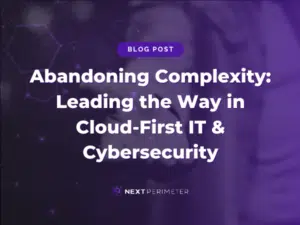There’s no easy way to talk about terrorism. It’s an unfortunate truth that it has become a new normal around the world with more people being affected by it daily. Terrorism of any kind is an act committed by an individual or group with the purpose of intimidating others. Cyberterrorism has the same goal by administering attacks against computer networks and infrastructure. In this post, we are going to look at cyberterrorism, and what makes it stand apart from other forms of cyber crime.
FBI Definition of Cyberterrorism
It would be easy to assume that there is no difference between cyberterrorism and other cyber attacks. After all, hacking into a computer network and disrupting operations have become common. However, according to the FBI, there is one distinct factor that separates the two attacks.
Retired Special Agent Mark Pollitt has supplied the accepted FBI definition of cyberterrorism. As a member of the Computer Analysis Response Team (CART), Pollitt was front and center when cyberthreats began hitting networks. He went on to define cyberterrorism as “…the premeditated, politically motivated attack against information, computer systems, computer programs, and data which result in violence against noncombatant targets by subnational groups or clandestine agents.”
So, cyberterrorism and other cyber crimes are identical except for one thing: intent. While a typical cybercriminal is focusing on monetary gain, cyberterrorism causes physical harm to a person or infrastructure to advance an attacker’s socio-political agenda.
How Attacks Are Carried Out
Since cyberterrorism and other cyber attacks have a lot of similarities, the way in which an attack is carried out will be the same as well. Think of the ways a cybercriminal can infiltrate a computer network. Those are all available to a cyberterrorist. Remember, the intent is what differentiates the two attacks. Instead of monetary gain, a cyber-terrorist wants to cause the most amount of chaos. They can achieve this by attacking power or traffic grids.
This doesn’t mean organizations or businesses are safe. Cyberterrorists will disrupt, or sabotage websites and other Internet-based resources owned by organizations that are in opposition to their views. Attacks will also be administered against military technology and public infrastructure with the purpose of terrorizing the people on the other end of the system.
Protection Against Cyberterrorism
Since cyberterrorism and other cyber attacks are carried out the same way, the ways to prevent them similar too. Keeping your network security tools up-to-date, whether they are hardware or software, is the best defense against any cyber attack, as well as continued employee training to reduce exposure to risk.
The team at IT Support Guys can help ensure your network security tools are up-to-date and keeping your business’ infrastructure safe. To learn more, talk with a specialist today at 855-4IT-GUYS (855-448-4897).





